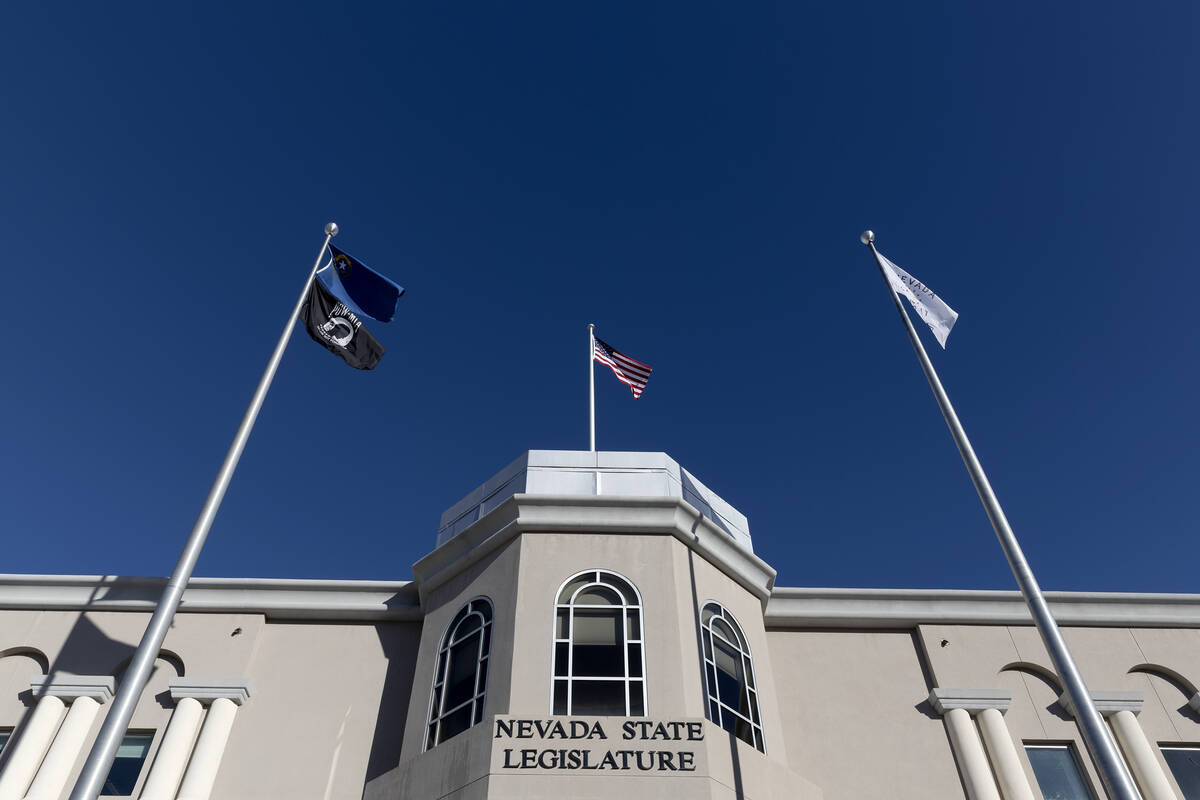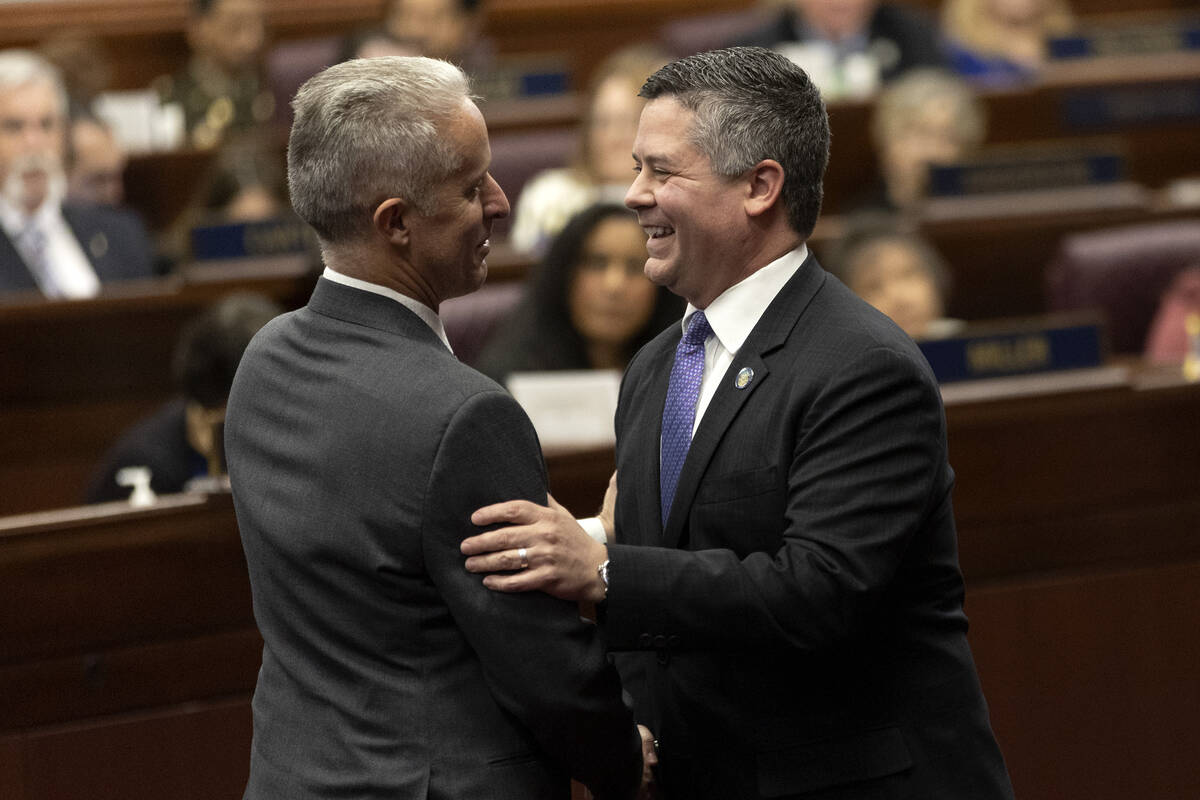Nevada lawmakers want to seal a tax loophole. Here’s why it may not close all the way.
Legislation to close a loophole that has cost Nevada governments millions of dollars in lost revenue is an “unsophisticated” approach and will do little to force businesses to pay the tax, experts say.
Assembly Bill 448, introduced after a Las Vegas Review-Journal investigation exposed that casinos and other big property owners avoided real estate transfer taxes in lucrative sales, was passed by an Assembly committee last month. The bill would require payment of the tax if the property is shifted to a business entity that was “formed for the purpose of avoiding those taxes.”
Legal experts said the measure might help close the loophole in smaller sales. But if the bill becomes law, high-priced lawyers and accountants still will find ways to help clients avoid the tax, they said.
“It struck me as being an unsophisticated way of approaching the issue,” said corporate attorney Bob Mahon, chair of the tax practice for legal giant Perkins Coie.
Former Clark County Deputy District Attorney Clifford Jeffers, who worked on real estate-related civil matters for years, doesn’t believe the measure will prove effective.
“This is a Band-Aid approach to something that’s a hemorrhaging problem,” Jeffers said.
Mahon and former tax attorney Don Griswold said there is a stronger way to close Nevada’s loophole in these complex deals: taxing the sale of an entity that holds ownership of a property.
Assembly Speaker Steve Yeager and Assembly Majority Leader Sandra Jauregui, the Las Vegas Democrats who introduced the bill, did not respond to requests for comment.
Nevada Realtors President Tom Blanchard said the real estate association supports any effort to review the exemptions that, under state law, allow certain deals to avoid the transfer tax. He said AB448 is a step in that direction and that his group applauds Yeager for introducing the bill.
“Hard-working Nevadans pay the (transfer tax), whether they are first-time home buyers or long-time property owners,” Blanchard said in a statement. “Yet, large corporate entities can escape the payment of the (tax) due to these exemptions, leaving millions of dollars out of the coffers of state and local governments. Fundamentally, this is unfair for everyday Nevadans.”
Nevada’s legislative session is scheduled to end June 5. The transfer-tax bill is scheduled for a hearing Thursday with the Assembly Ways and Means Committee.
‘Easy as falling off a log to avoid this thing’
Griswold, who used to find tax loopholes for clients but is now a vocal critic of tax avoidance, said AB448 marks a positive change for Nevada but is not as strong as it should be.
One potential problem: The bill raises the issue of intent.
Jeffers said the notion of proving intent in these sales is “ridiculous,” as advisers will know how to form an entity for a legitimate purpose that also lets clients avoid the transfer tax.
Griswold said proving intent might require expensive litigation and noted that executives could simply dust off an old shell company to use in a new transaction. This way, they can say the entity was formed long before the sale in question came about and couldn’t have been set up with the intent of avoiding transfer taxes in the deal.
“Easy as falling off a log to avoid this thing,” said Griswold, who previously worked for major accounting firms KPMG and PwC as well as big law firms.
The Nevada Resort Association declined to comment on the bill.
Vegas Chamber is monitoring the legislation, but the business group hasn’t taken a position on it yet, spokeswoman Cara Clarke said.
Big sales, no transfer taxes
Transfer taxes comprise 0.51 percent of a property’s sales price in Clark County, and the revenue goes to Nevada’s general fund, schools, low-income housing and other services. The state generated more than $330 million in transfer tax revenue last fiscal year.
But over the years, Las Vegas has seen plenty of high-priced deals that didn’t produce a dime of this tax.
At least $27.5 billion worth of transactions in the Las Vegas area — comprising roughly two dozen sales involving hotel-casinos, malls and other properties mostly on or near the Strip — closed since 2007 without any publicly reported real estate transfer taxes, the Review-Journal reported last spring.
In such deals, investors often acquire an entity that holds ownership of the real estate, instead of buying the property directly, and frequently cite a transfer-tax exemption allowed under state law when real estate is shifted to a subsidiary.
One way to capture the revenue on such deals is by taxing the sales of real estate-holding limited liability companies or other entities. A total of 17 states impose or allow these so-called controlling interest transfer taxes, according to a spring 2020 article by Holly Unck, a vice president of transaction tax services with commercial real estate brokerage CBRE Group.
Nevada is not one of them.
As Unck wrote, states expanded their laws to include this tax as they became aware of legal loopholes that allowed property owners to avoid real estate transfer fees.
Griswold said the controlling interest tax is not bulletproof and noted that lawmakers are going up against smart advisers in the private sector.
“Targeted anti-abuse rules sound great on their face, and if you’re going to do nothing else, well then do that,” he said. “But any tax-avoidance-enabler worth their fees can get around almost any targeted anti-abuse rule.”
Contact Eli Segall at esegall@reviewjournal.com or 702-383-0342. Follow @eli_segall on Twitter. Segall is a reporter on the Review-Journal’s investigative team, focusing on reporting that holds leaders, businesses and agencies accountable and exposes wrongdoing.


























